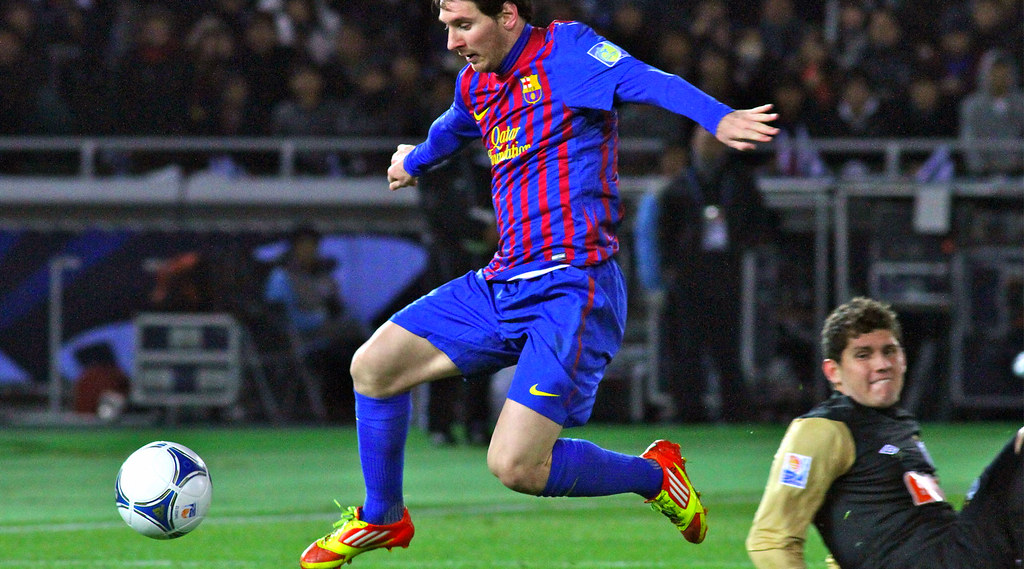Before the digital age, young people got into football or other sports in various ways. That could be through supporting their local and school teams, family influence, and cultural significance.
Many fans back then would discover their love for the sport by attending local matches in their communities. Still, times have changed, and today’s younger generations find and follow football differently.
Video Games as the Gateway for New Football Fans
In a recent Forbes article, Electronic Arts (EA) director of eSport, Monica Dinsmore, said that young fans will likely get more interest in football and other sports through video games rather than watching matches live. That’s because these days, it’s quite a challenge to attend live football matches.
“If you’re a fan of [English Premier League side] Chelsea, for example, you’re never going to be able to go to a game unless you’ve had tickets over generations, and you might not be able to watch a game because it’s behind a paywall,” she explained.
“But you can engage with your favourite players and teams as a Chelsea fan through EA FC (video game). And you can also watch a player who represents Chelsea, who’s one of the best in the world, play the game. So, there are many different ways for you to engage.”
Now, this isn’t something because this has been observed in generations, starting with the Millennials (1981-1996). Research published last year called: “Millennial football fan participation: the influence of football video games on play and engagement.”
Based on this, millennial football fans are multi-dimensional as they’re not just watching the matches live. They’re engaging in other football-related activities by playing the actual sports themselves, playing football video games like the ones EA produces, and following relevant people in the industry on social media.
Gen Zs are More Interested in Following Players than Football Clubs
Gen Zs (1997-2012) also share the same traits with millennials regarding how they follow the sport. However, research suggests that Gen Zs are more inclined to follow a football player instead of following a single club, which is how traditional football players usually are.
This, however, has caused concern among the football community members and is likely why there have been attempts to make the European Super League a thing. It’s an NFL-style European football tournament without the risk of relegation and guaranteed permanent membership for big clubs. Unfortunately for younger fans, this has faced mass protest, so it hasn’t materialised… yet.
Gen Zs are also playing more football video games, and EA talked about how they now see more players in their FIFA games year-round. They’ve also spotted generational differences.
“Both from what we see in the game and anecdotally, through our research as well, the younger generation of fans – we call them Gen Z – very much have their favourite players, and probably are a little less committed and passionate – not in all cases, but in some cases, particular clubs. Although the allegiances to clubs still run through family lines, that hasn’t changed,” Nick Wlodyka, EA’s SVP and GM, explained.
Millennials and Gen Zs’ Growing Interest in Betting
Aside from video games, sports betting has also blown up in recent years, and millennials have the highest participation. Recent studies have shown that around 48% of sports bettors online are millennials. Gen Zs are also quickly catching up, and many are now showing interest in placing bets on this football betting site.
Both generations are tech-savvy and are more inclined to football-related content online. Nowadays, it’s so easy to place sports wagers, too, as countless online platforms exist. The latest digital payment solutions have also made online betting much safer and more convenient.
The variety of online football betting options is also a factor. Many online bookies have different odds available for a single match. Those who want a different experience can also get into virtual sports, such as simulated football matches online, that they can wager on.
Social media and influencers also play a significant role in promoting sports betting among Millennials and Gen Zs. Influencers often share their betting tips and experiences, creating a sense of community and encouraging their followers to participate.
Final Words
The digital age has revolutionised how younger generations engage with football and other sports. It will be interesting to see how the sport will continue to thrive when Millennials are Gen Zs will be the primary audience of the industry. Will the European Super League ever be a thing? Well, only time can tell.


